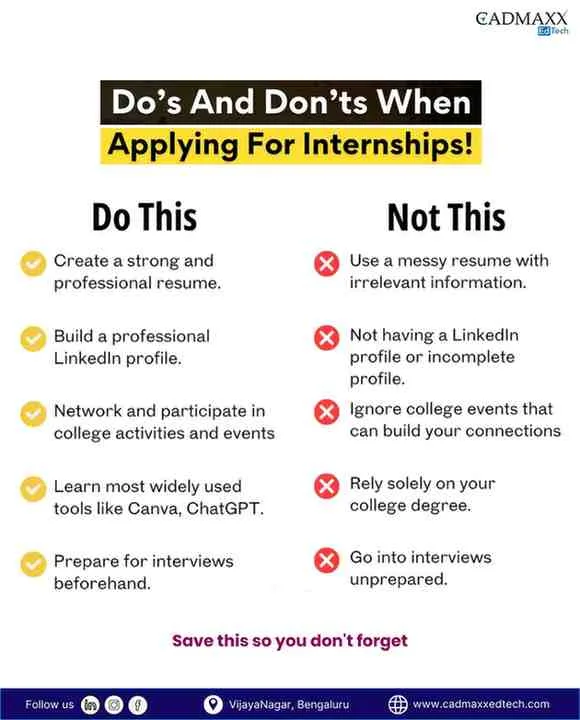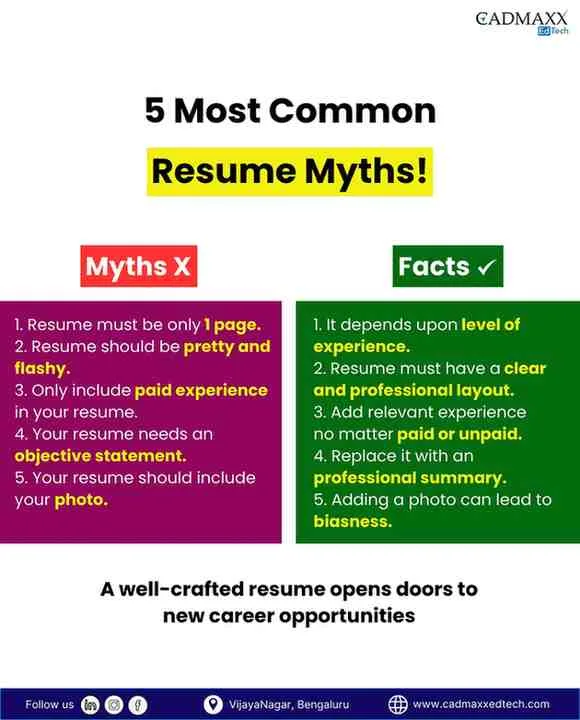Internship Application Tips: What to Do and What to Avoid



Do This:
1. Research, Research, Research: Understand the company, its products/services, mission, values, and culture to show your interest and enthusiasm.
2. Tailor Your Resume and Cover Letter: Customize your application materials to match the internship requirements and highlight relevant skills.
3. Utilize Job Boards and Career Platforms: Popular job boards, company websites, and professional networks like LinkedIn, Indeed, and Glassdoor.
4. Leverage Social Media: Engage with companies on social media platforms to stay updated on job openings.
5. Network and Seek Referrals: Reach out to alumni, professionals, or friends working in the industry for valuable insights.
6. Practice Your Interview Skills: Prepare answers to common interview questions and participate in mock interviews.
7. Be Proactive: Apply to multiple internships and follow up with employers.
8. Showcase Your Projects and Skills: Share relevant projects, certifications, or coding profiles.
9. Be Open-Minded: Consider various industries, roles, and locations.
10. Follow Instructions: Carefully read and adhere to application guidelines.
Not This:
1. Don’t Lack Preparation: Research the company and practice interview questions.
2. Don’t Have a Generic Resume/Cover Letter: Customize your application materials.
3. Don’t Apply to Unrelated Roles: Ensure alignment with your skills and interests.
4. Don’t Overlook Small Companies: Startups and SMEs offer valuable experiences.
5. Don’t Wait for the Last Minute: Apply early.
6. Don’t Misrepresent Yourself: Be honest about skills and experiences.
7. Don’t Ignore Application Guidelines: Adhere to submission requirements.
8. Don’t Forget to Follow Up: Politely inquire about your application status.
9. Don’t Be Negative: Show enthusiasm and positivity.
10. Don’t Give Up: Rejection is part of the process.
Additional Tips:
– Build a professional online presence.
– Develop relevant skills through online courses.
– Highlight transferable skills from non-academic experiences.
– Prepare thoughtful questions for interviews.
– Stay organized and track applications.

